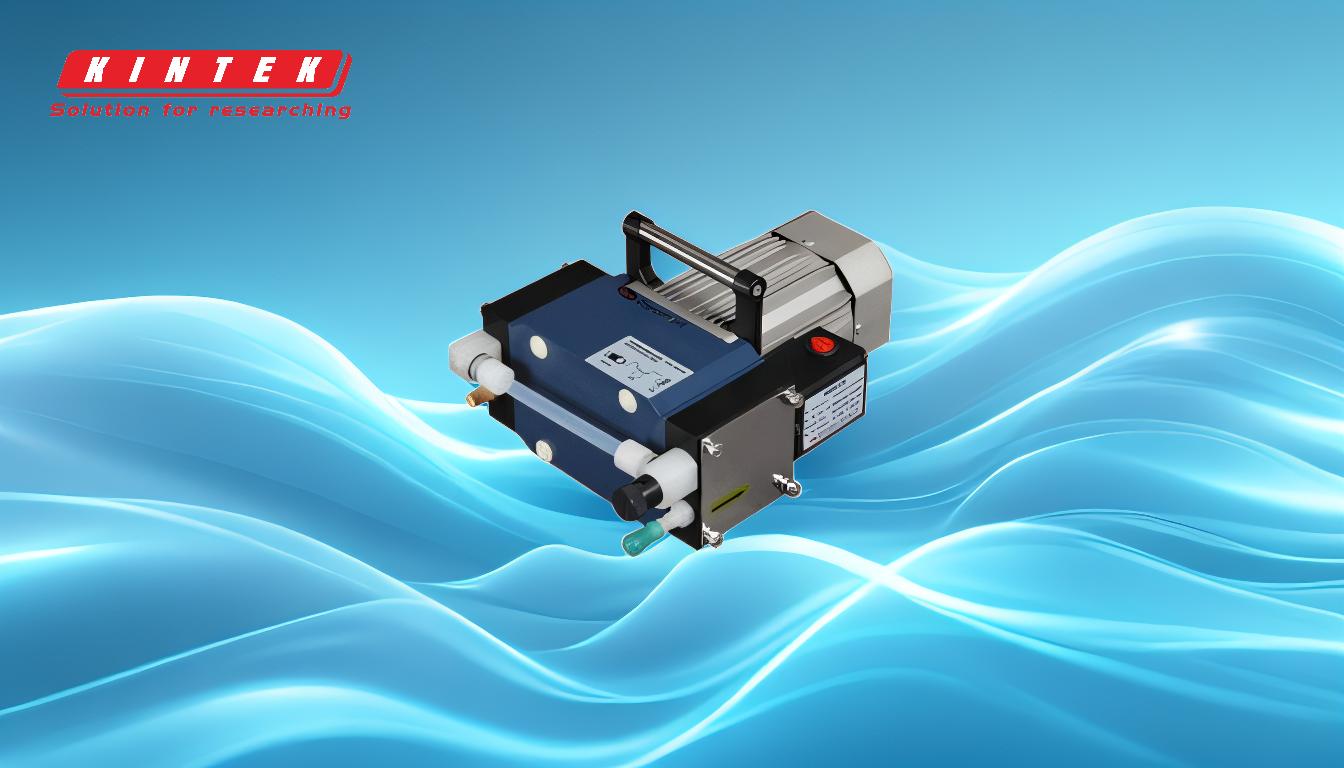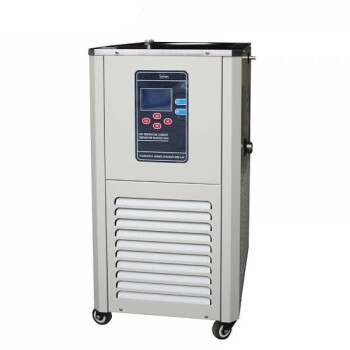A diffuse pump, specifically a vacuum diffusion pump, is a device used to create and maintain a high vacuum in a vacuum chamber. It operates by heating a special oil, which vaporizes and forms a high-speed jet of vapor. This vapor captures and entrains gas molecules from the vacuum chamber, compressing them and expelling them out of the pump. The process relies on the principles of vapor diffusion and condensation, with the oil being continuously recycled. Diffusion pumps are widely used in applications requiring high vacuum levels, such as in scientific research, semiconductor manufacturing, and vacuum coating processes.
Key Points Explained:

-
Basic Operation Principle:
- A vacuum diffusion pump uses heat to vaporize a special oil, creating a high-speed jet of vapor.
- The vapor captures gas molecules from the vacuum chamber and compresses them, expelling them out of the pump.
- The process is continuous, with the oil being recycled after condensation.
-
Key Components:
- Heater: Heats the boilerplate, causing the oil to boil and vaporize.
- Diffusion Pump Oil: A specialized oil that vaporizes at high temperatures and is used to create the vapor jet.
- Jet Stack: A vertically tapered stack with jet openings that directs the vapor upward, creating an umbrella of vapor.
- Condensing Coils: Located on the pump’s exterior, these coils cool the vapor, causing it to condense back into liquid oil, which then flows back down to the boilerplate.
- Vacuum Chamber Connection: The top of the pump connects to the vacuum chamber, allowing the pump to create a high vacuum within the chamber.
-
Process of Creating a Vacuum:
- The heater heats the oil, causing it to boil and produce vapor.
- The vapor rises through the jet stack, creating a high-speed jet that captures gas molecules from the vacuum chamber.
- The captured gas molecules are compressed and expelled out of the pump at the base.
- The vapor condenses on the cool condensing coils, turning back into liquid oil, which then flows back down to the boilerplate to be reused.
-
Advantages of Diffusion Pumps:
- High Vacuum Levels: Diffusion pumps are capable of achieving very high vacuum levels, making them suitable for applications requiring ultra-high vacuum conditions.
- Continuous Operation: The pump operates continuously, with the oil being recycled, allowing for sustained vacuum levels over long periods.
- No Moving Parts: Diffusion pumps have no moving parts, which reduces mechanical wear and maintenance requirements.
-
Applications:
- Scientific Research: Used in experiments requiring high vacuum conditions, such as in particle physics and material science.
- Semiconductor Manufacturing: Essential in processes like chemical vapor deposition (CVD) and physical vapor deposition (PVD), where high vacuum is necessary.
- Vacuum Coating: Used in applications like thin-film deposition, where a high vacuum is required to ensure the quality of the coating.
-
Considerations for Purchasers:
- Oil Type: The choice of diffusion pump oil is critical, as it affects the pump’s performance and maintenance requirements. Different oils have varying vapor pressures and thermal stability.
- Pump Size: The size of the pump should be matched to the volume of the vacuum chamber and the required vacuum level.
- Maintenance: Regular maintenance is required to ensure the pump operates efficiently, including checking and replacing the oil as needed and cleaning the condensing coils.
- Compatibility: Ensure the pump is compatible with the vacuum chamber and other components in the vacuum system.
-
Comparison with Other Vacuum Pumps:
- Mechanical Pumps: Diffusion pumps can achieve much higher vacuum levels compared to mechanical pumps, which are typically used for rough vacuum applications.
- Turbo Pumps: While turbo pumps also achieve high vacuum levels, they have moving parts and require more maintenance. Diffusion pumps are often preferred for their simplicity and reliability.
- Cryopumps: Cryopumps are used for ultra-high vacuum applications but require cooling systems. Diffusion pumps are more cost-effective for many high vacuum applications.
In summary, a vacuum diffusion pump is a crucial component in systems requiring high vacuum levels. Its operation relies on the vaporization and condensation of a specialized oil, creating a continuous cycle that effectively removes gas molecules from the vacuum chamber. When selecting a diffusion pump, considerations such as oil type, pump size, and maintenance requirements are essential to ensure optimal performance and longevity.
Summary Table:
| Aspect | Details |
|---|---|
| Operation Principle | Uses heat to vaporize oil, creating a high-speed vapor jet to remove gas molecules. |
| Key Components | Heater, diffusion pump oil, jet stack, condensing coils, vacuum chamber connection. |
| Advantages | High vacuum levels, continuous operation, no moving parts, low maintenance. |
| Applications | Scientific research, semiconductor manufacturing, vacuum coating processes. |
| Considerations | Oil type, pump size, maintenance, compatibility with vacuum systems. |
Discover how a vacuum diffusion pump can enhance your high vacuum processes—contact us today for expert advice!








